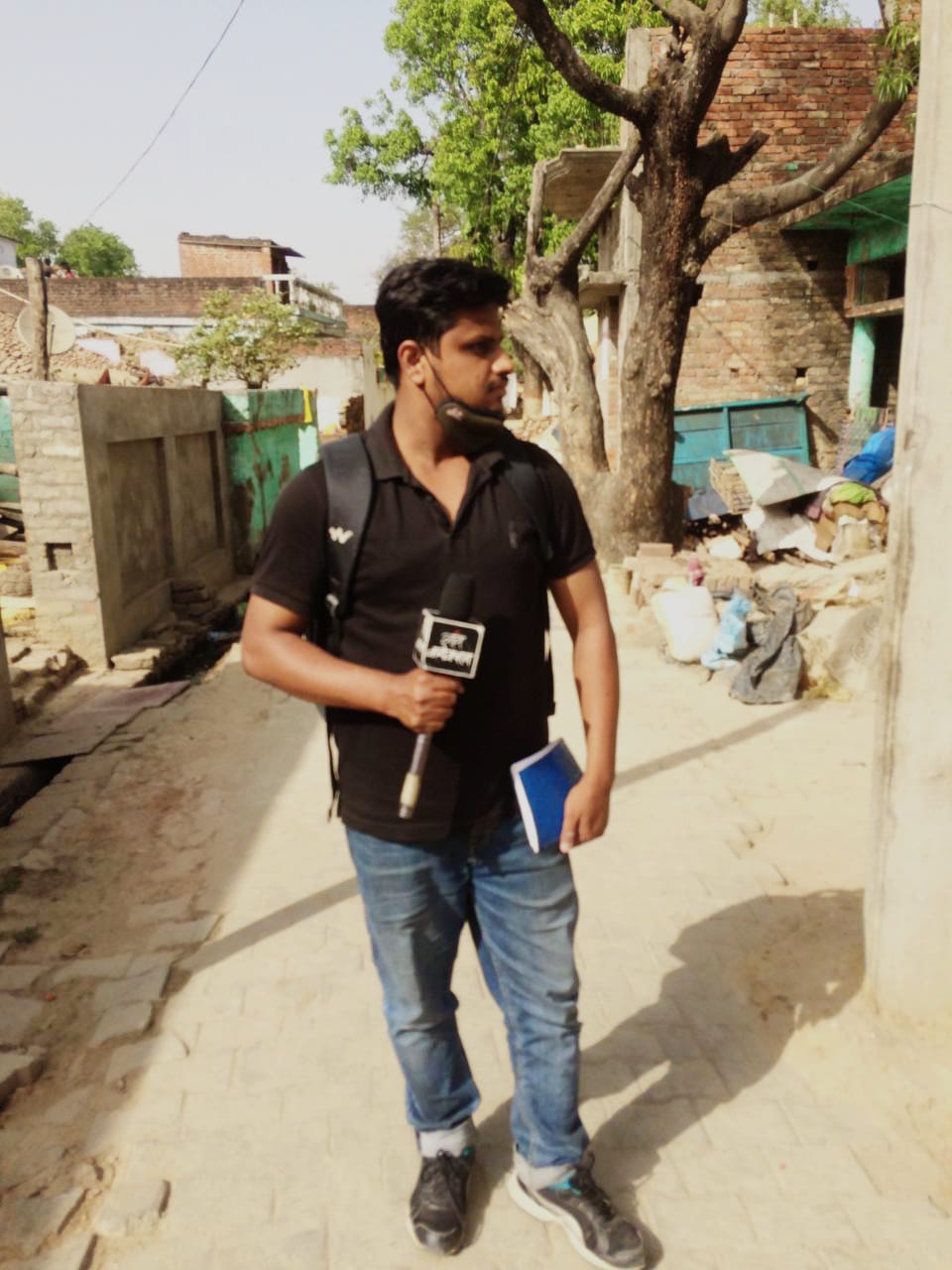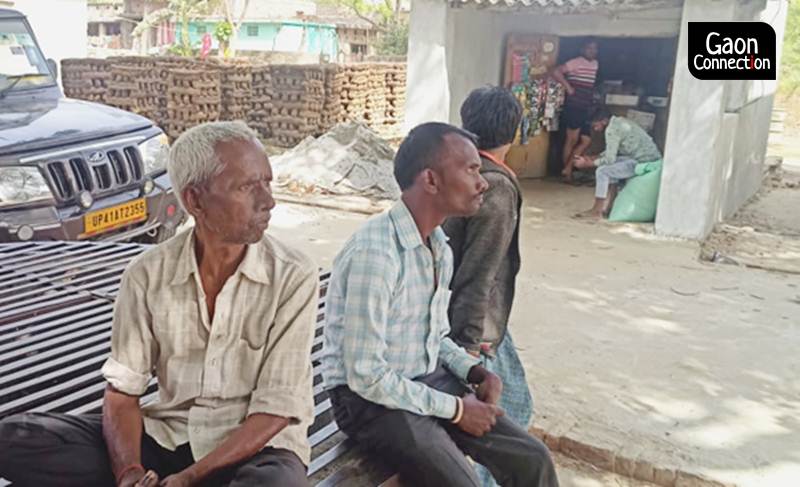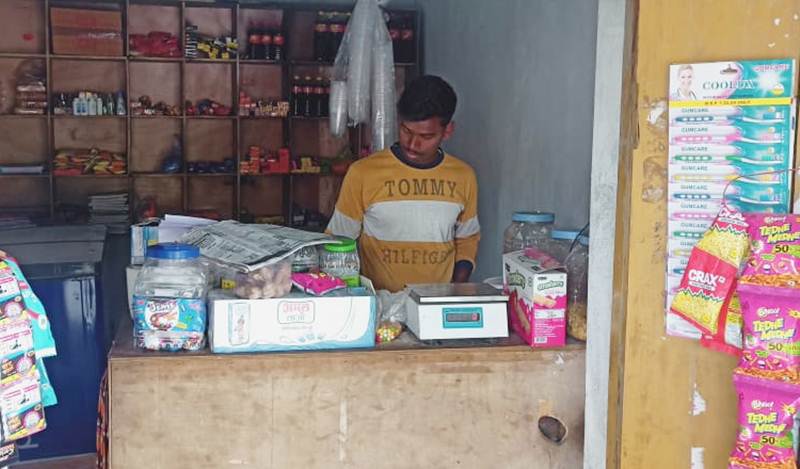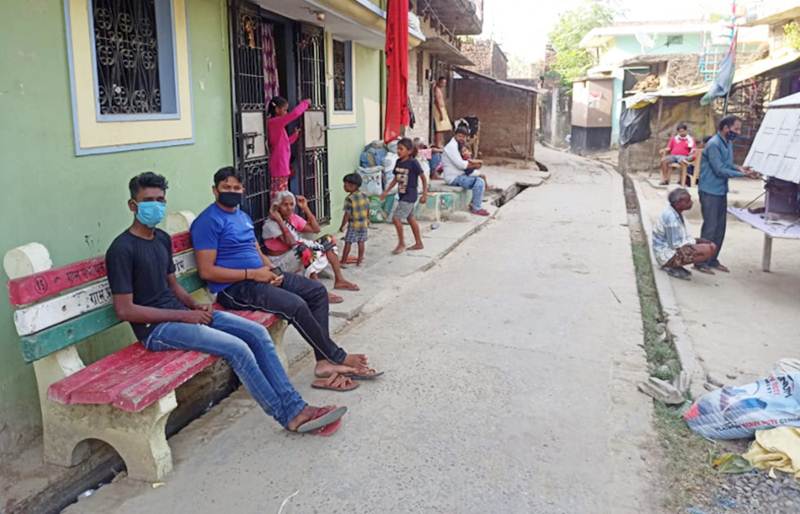“We were hoping to go back to our jobs… but Corona has again ruined all prospects”
With the second wave of COVID19 causing unprecedented loss of lives since the pandemic began, residents of rural India narrate their experiences of last year’s lockdown.


Many workers have lost their jobs, some are heavily under debt, or have had to sell their land to tide over the last year of crisis. Photo: Pratyaksh Srivastava
Gorakhpur, Uttar Pradesh
Manbela Khas is a semi-urban area nestled within Gorakhpur city limits. Sixteen-year-old Abhay Yadav studies in class 10 and has not gone to school for a full year. He manages to keep up with academics by attending classes at a nearby coaching centre — but the teaching there is not as good as it was in school.
“Online classes are not available as most of my classmates don’t have smartphones or computers. I have a keypad wallah (feature phone) and video calling is not available,” Yadav told Gaon Connection.
“Coaching classes are very expensive compared to school. It’s difficult to grasp concepts in coaching class too,” the teen added.
In the same locality, Gangesh Nishad owns a grocery store. The 20-year-old had set up his shop merely a couple of months before the lockdown was announced in March last year.
Nishad incurred losses because of the lockdown, but has slowly begun to compensate for it as customers have now begun to buy daily goods from his shop.

“A lot of my products got wasted during the lockdown last year. The stock of sugar, confectionary, snacks, and other edibles got wasted. I suffered a loss of twenty five thousand rupees. It was a big blow as I had just started a business for the first time. I lost my father in childhood, so I quit my studies after school to support my family,” Nishad told Gaon Connection.
“The business was picking up, but this second wave of Corona seems dangerous. I am praying authorities don’t declare another lockdown,” Nishad added.
India is hit by a severe ‘second wave’ of COVID19 and has recorded daily cases whose numbers are soaring with every passing day. On April 24, India recorded over 346,000 cases of coronavirus infections. The pandemic has had a terrible economic impact as well as it has unleashed a second wave of reverse migration of migrant workers to their villages.
Also Read: Amid rising COVID19 cases, migrant workers in rural UP anxious about another lockdown
Exactly a year ago, a similar wave of reverse migration was witnessed across India as migrant workers, stranded in cities without a job, shelter or food, headed back to their towns and villages. The reverse migration of the workers from India’s metropolitan cities to their rural homeland saw them tackle a series of issues. Many have lost their jobs, some are heavily under debt, or have had to sell their land to tide over the last year of crisis.

“There are too many people in the village now and too little work to do. There is very little work in the fields and that is not enough to keep people occupied. This has also led to lesser wages to be earned as a field labourer, as there are too many people willing to work,” said 55-year-old Munni Lal of Mirzapur village, which is situated about 12 kms away from Gorakhpur — also the hometown of Uttar Pradesh Chief Minister Yogi Adityanath.
“We were all hoping to go back to our jobs in the cities after March but Corona has again ruined all the prospects,” said Lal, who used to work as a painter in Bengaluru.
Panchayat elections in pandemic
Also, the second wave of COVID19 is coinciding with the rural body panchayat elections in Uttar Pradesh. The villagers have expressed fears that the crowds at the polling centres can possibly spread COVID19 in their villages.
“The voting centre in our village was set up at the primary school beside the market. The candidates had distributed face masks amongst the villagers. Most of the people in the village went to vote,” 22-year-old Aditya Vishkarma from Mirzapur village told Gaon Connection.
“We went to vote on April 15, it’s been more than a week now. Nobody in the village has shown any symptom yet, but there is always this possibility of someone getting infected. So the villagers usually wear masks. People here are more aware about Corona than last year,” he added.
Also Read: UP Panchayat Elections – Villagers terrified city-dwellers will bring home votes and COVID-19
The youth’s comments find resonance in the words of 48-year-old Deen Dayal Yadav who lives almost 30 metres away from Vishkarma’s house.
“Yes, most of the people went to cast their votes but precautions were taken. More than the Corona, the issue in this village is that people’s incomes have been reduced to almost nothing in the past one year. People get grains for their labour in the fields but there is no cash in hand,” Yadav told Gaon Connection.
“We are all managing to get two meals a day but we have little money to cope up with a health crisis or an emergency,” he added.
Meanwhile, 38-year-old Bimlavati of Mirzapur village, pointed out another problem she has been facing for the last one year ever since her husband and her brother-in-law have returned from the city in the aftermath of the last year’s lockdown.“Jahan chaar bartan honge, wo khatkenge bhi, (if utensils come together, they will certainly clamour),” she said as she talked about how her life has been embroiled in trivial conflicts and arguments at home.
Bimlavati told Gaon Connection that apart from the financial situation of the household and the village, there has been a marked change in the social bearings of the village in the last one year.
“People have nothing much to do in the village now and idle chatter often leads to senseless arguments and friction. There is no serious conflict but chhoti chhoti baatein (trivia) spoils the peace of mind,” she said.

